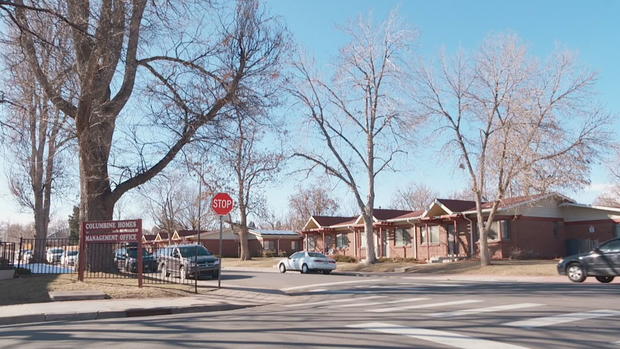Study To Determine Radon Mitigation In Denver Public Housing Delayed By Coronavirus
DENVER (CBS4) - A study expected to determine the best path forward in mitigating dangerously high levels of radon from Denver's public housing units has been delayed due to the coronavirus pandemic, a spokesperson for the Denver Housing Authority said in an email to CBS4.
In February, CBS4 Investigates hired a National Radon Safety Board-certified testing company to test five public housing units. The company, Area5280 Home Inspections, found radon levels twice the EPA's recommended limit in both units tested at the Columbine Homes complex. In the Westridge Homes complex, one result was just under the EPA's limit. Two other results were far below the limit.
RELATED: CBS4 Investigation Finds Dangerous Radon Levels In Public Housing
Asked about the findings, DHA Executive Director Ismael Guerrero said the housing authority had hired Environmental Technical Solutions -- or ETS -- to conduct an independent review on the best ways to mitigate high radon levels from the public housing units DHA owns and operates.
A spokesperson for DHA said it's spending $9,360 on that study, and the study's report was expected to be complete in May, but it is still currently in the process of being finalized, and has been delayed by the pandemic.
In the meantime, thousands of residents living in public housing units could remain at risk, and with the pandemic in effect, many people are staying in their homes several more hours of the day than normal, exposing them to even more radon concentrations than before.
CBS4 Investigates will keep you posted when the results of the ETS study are released.
What Is Radon?
Radon is a radioactive gas that comes up naturally through the ground, but when it gets trapped in the home, it can be inhaled at highly concentrated levels and can cause lung cancer. In fact, radon exposure is the leading cause of lung cancer in non-smokers in the U.S., according to the EPA. The Centers for Disease Control said radon exposure causes more than 20,000 deaths in the U.S. every year.
Homes in Colorado have a greater risk of having higher radon levels, due to the geological makeup of the state's ground material.
Radon mitigation systems, which suck the radon gases out from underneath the home and disperse them into the outside air, can be installed on the side of homes to significantly lower toxic radon levels inside.
Even though the U.S. Department of Housing and Urban Development, or HUD, was recommended by congress back in 1988, with an amendment to the McKinney Act, to begin testing and mitigation, the department has yet to create any policies enforcing the measure.
Because of the lack of regulation, local housing authorities, which own and operate public housing complexes with the support of HUD, have taken little action on their own accord.
Guerrero said DHA has tested and mitigated about 60% of the public housing units it owns as it has remodeled old buildings in recent years, but not all of them.
"There are currently not any federal local or state requirements or regulations around radon testing, so our approach has been to do it when we're doing a modernization, so we have the resources required," Guerrero said in February.
That's something that worries residents like Barbara Alcon, who lives the Westridge Homes complex. While CBS4 Investigates found a low radon level in Alcon's home, she said she's concerned about the safety of others in the city's public housing.
"What are they going to do if somebody dies, gets sick, because their radon was too high?" Alcon asked in a February interview with CBS4 Investigates. "Are they going to feel guilty about it? Or are they going to brush it off? That's the scary thing about it."




